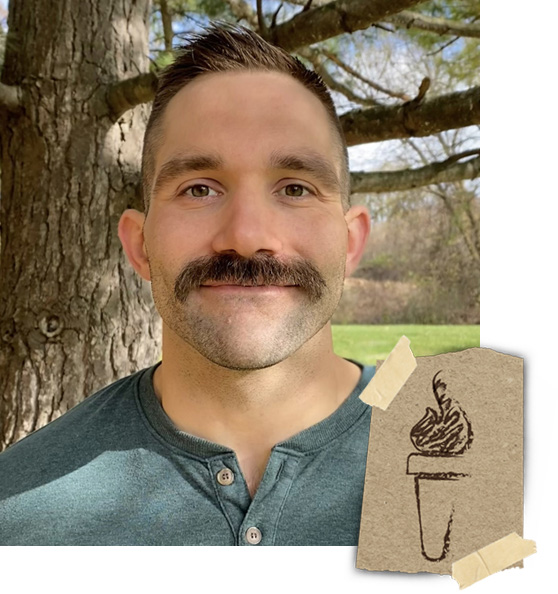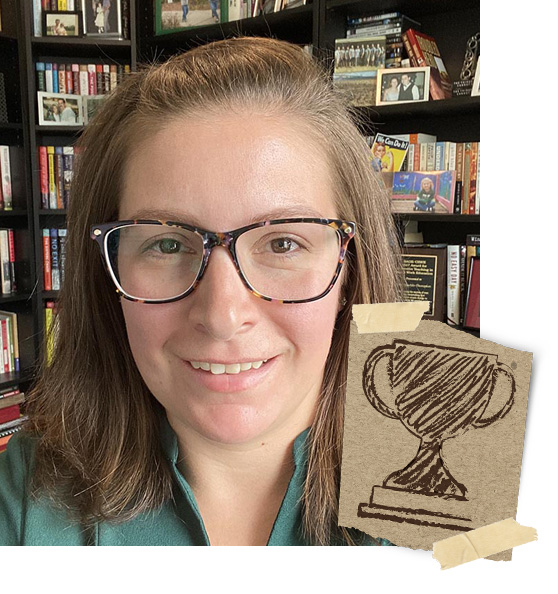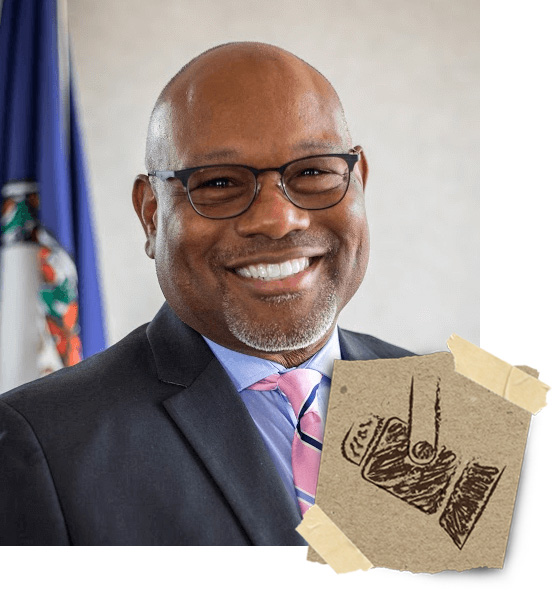Access Torch: Steven Willis
November 7, 2025 - Emily Jodway
 During the month of November, we celebrate Veterans Day and acknowledge the sacrifices made by all those who have served in our United States Armed Forces. Our November Access Torch honoree is Steven Willis, a veteran of the US Army and former psychology student in the College of Social Science, whose experiences with transitioning into post-military life have inspired him to help others in their own journeys.
During the month of November, we celebrate Veterans Day and acknowledge the sacrifices made by all those who have served in our United States Armed Forces. Our November Access Torch honoree is Steven Willis, a veteran of the US Army and former psychology student in the College of Social Science, whose experiences with transitioning into post-military life have inspired him to help others in their own journeys.
Willis originally joined the military on an infantry contract with a special operations track, switching over to special forces halfway through his basic training and completing Airborne School in Fort Benning, Georgia. While preparing for the Special Forces Qualification Force, Willis was injured, and was reassigned to field artillery and finished out the remainder of his service at Fort Bragg in North Carolina, earning an honorable discharge in 2020.
Willis’s injury changed the trajectory of his life and helped him find his true calling. The camaraderie and support that he found with his fellow soldiers revealed new personal strengths and a passion for helping others. It also revealed some of the gaps in support services for military members both during and after their time serving.
“It was these experiences that led me to understand that not all support systems look the same, and sometimes the most impactful service is simply showing up for another person and caring about them,” he explained. “That was the realization that I had and what led me towards wanting to study psychology and human services.”
Back home in New York, Willis enrolled in MSU’s psychology program. He was drawn to Michigan State after learning about their Student Veteran Resource Center and large student veteran community. During this time, Willis was also navigating the challenges of finding his personal identity and place in the world now that he was no longer a soldier. It was an often uncomfortable journey of self-reflection, he says, but one that was necessary in helping him become more self-aware and better at connecting with others.
Many of the issues that were cropping up for Willis are common for many veterans. He describes feelings of isolation, constant judgement, and having to learn how to respond to emotions in a healthy way, after years of being trained to act without hesitation and separating those actions from emotions. He often leaned on his friends and family for support throughout this time, which strengthened his desire to help others with their own struggles.
“It made me think about veterans who don’t have those kinds of support, he said. “I wanted to get into that space and try to bring awareness to the importance of asking for help and reaching out. Oftentimes, the world wants to help you, but you have to be the one to go out and look for it.”
Willis pivoted to looking specifically at the transition process for women and others with unique backgrounds after seeing how difficult it often was for him, even with a support system. He was taking a women’s psychology course, and decided to create an informational flyer and Facebook support group for women veterans as his honors project. His hope was that the online group would create a space where these women could find connection and support, and combined with the flyer, become better informed on services such as mental health care, education benefits, and financial resources that could help ease the transition journey. “The goal was to help women veterans feel oriented and better equipped, less overwhelmed, so they could start utilizing their available benefits when they leave service,” he said.
During this project, Willis learned more about some of the unique ways in which women who have served in the military struggle with finding their identity. He describes a ‘double invisibility’ in which women are often underrepresented in the military and in turn overlooked as members of the veteran community. Women veterans also face barriers such as higher unemployment, mental health challenges, and childcare responsibilities.
For these women, Willis explains, “Identity validation matters.” Some of the ways in which this could be accomplished are through peer-to-peer mentorship programs that begin while a woman is still serving in the military, and continue on after their service concludes. Willis also suggests more tailored transition programs that address the uniqueness of each veteran’s experience. This could include services for veterans processing military trauma, returning to civilian life and preparing to become a caregiver for elder parents, or seeking to enroll in higher education.
“I believe the mission of the military is better served when we recognize the full spectrum of military talent and barriers, so that everyone can contribute at every level,” he added.
Willis is currently with the College of Education earning his master’s in rehabilitation counseling, and hopes to work with disabled veterans. He believes the best way that we can support veterans is by addressing the whole individual and recognizing that the status of ‘veteran’ is just one part of their identity. Asking about other interests and aspects of their life outside of the military, and fostering an inclusive environment, are some of the ways this can be accomplished.
“For many veterans, regaining that everyday sense of belonging within our community is what really helps, and what makes reintegration work,” he said.
When thinking about Veterans Day and the importance of setting our veterans up for success, Willis also brings up the importance of a strong support system and having healthy outlets for processing.
“Part of the deconditioning of the military is being able to slow down and recognize that you’re in a safe environment and you’re able to be in your own space without having to justify yourself,” he said. “It’s huge, but it takes time, and it’s important to show yourself grace, recognize that it’s not going to be a perfect process and that you might slip up at times, but that the important thing is to be resilient and keep going.”
Honorees’ views are their own and do not necessarily reflect those of the College of Social Science.
Read more:

Access Champion
Faculty/Staff
Tina Thompson
Tina Thompson is an instructor in the School of Social Work and Coordinator of the Combat Veterans Certificate (CVC), designed for civilians, service members, and veterans who have a passion to help those who have been exposed to the trauma of war or military conflict through their service in the U.S. Armed Forces.

Access Spotlight
Alumni
Mike Alston
Mike Alston is an alumnus of the MSU School of Criminal Justice and a retired Federal Law Enforcement Officer with experience in the Drug Enforcement Agency and United States Department of Agriculture, culminating in over 35 years of federal service.

Access Matters
We strive to cultivate an inclusive and welcoming college environment that celebrates a diversity of people, ideas, and perspectives.

